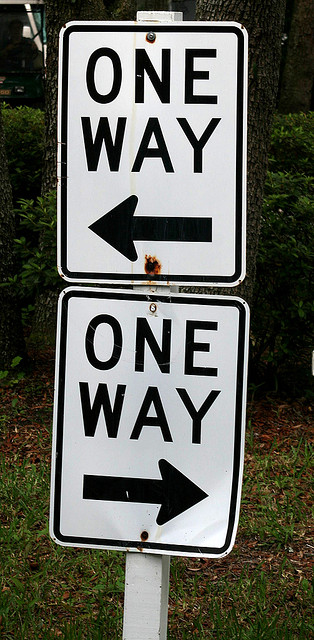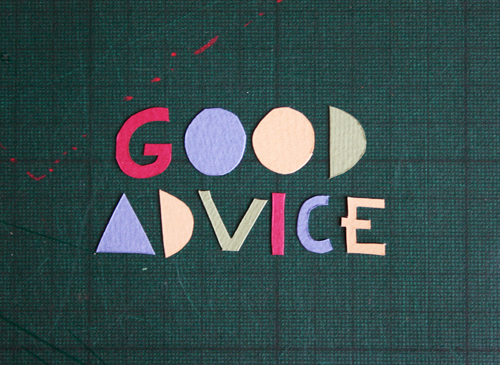Good Advice #12: Should I use their contract or mine?
When does it make sense to use the other side’s contract and when should you push for using your own? Why does it matter and how do you figure out what to do?
I’ve been working as a freelancer for the last 18 months. I’m a designer and build websites for my clients; occasionally I’ll help them with designing printed materials as well.
I was talking with a friend who’s also a freelancer and she was shocked to learn I don’t have a standard contract to use with my clients. Most of my clients are companies with procurement departments (or contracting policies) and they insist on using their contracts. I don’t see the downside: I’m working with a contract without having to pay a lawyer to draft one for me. Win-win, no?
A fine question! And while I could give you a quippy Good Lawyer answer, the day-to-day realities of working as a freelancer can make things a bit more complicated.
First off, you are right that working with a contract is better than working without a contract. It’s always better to have the agreement in writing so everyone at least starts off with the same understanding of what you’ll be doing together.
That being said, all contracts aren’t created equally. A lawyer drafting a contract for his or her client is going to make sure the contract is fair enough to be enforced if there’s ever a lawsuit but as beneficial to their client as earthly possible.
That means whenever something–payment, delivery terms, ownership–can be drafted in a way that’s helpful for their client, they’ll do just that. Which means, it is likely less helpful to you.
Let’s use payment terms as an example. All things being equal, it’s in your client’s best interest to only pay for your work when they feel it is complete and meets their requirements.
Why? For one, they can spend that money on other things in the interim, things like advertising that might make them more money. For another, waiting to pay you until the project is complete ensures that you’ll complete the project in exactly the way they want; if you want to get paid, you’ll keep working until the job is done.
So when you use the other side’s contract, chances are it is drafted to best serve them, not you. And that isn’t in your best interest when you’re running your own business. It’s in your best interest to have a contract that protects you and allows you to run your business with the fewest possible interruptions.
Getting a lawyer to draft you a contract will likely cost at least couple hundred dollars and may cost over a thousand. But if you use a $700 contract with every client you work with, say 20 clients over the course of the year, that makes the contract cost $35 per client. $35 to make sure you get paid on time, that ownership is crystal clear, and that you aren’t left holding the bag if things go kerflooey.
So how do you decide when it makes sense to use your contract or theirs?
Who’s the expert? Based on what you’re doing, who’s the expert at doing it? When you’re providing services for a client, chances are you’re the expert. You do this work (hopefully) all the time; they’re just hiring you as a one-off. You inherently know more about how the work will progress and what the process is like, so you’re in a better position to know what needs to be in the contract.
There may be times when the other side is in a better position to know what’s what, for instance if someone is publishing your work or they’re commissioning something very particular for a larger project. In instances like those, it’s worth it to hire a lawyer to help you review the contract and make sure that your interests are protected even though you’re signing their paper.
How much time do you have? The more time you have the easier it is to draft a solid contract. (This is another reason having your own contract can be helpful — it’s drafted once and you can use it over and over as you need it.) Sometimes it can’t be helped, but don’t wait until the last minute to figure out what contract you’ll use. Generally speaking: if you have more time, draft and use your own contract, if time is short, use their’s but get an attorney to help you review it.
How much is the project worth? The more expensive the project, the more likely it is that your client will want to use their own contract: they’ll want to protect their investment by making sure the job works in their favor. But money isn’t the only thing that determines value. If this is an important client to you or the project is important to your portfolio, it may make sense to use your own contract so you can ensure you’ll get what you need to from the job.
Even if you do end up using your client’s contract make sure you’re very clear about your policies. Help the client understand what they should expect when working with you and what’s a non-starter.
Good luck & thanks for the question!
How do you decide when to use your own contract and when to accept the other side’s? What factors do you consider?
Have a question for the Good Advice column? Drop me a line!
Categories: Good Advice, Good Advice Posts





I absolutely agree. It is so important to have a contract that clearly states the payment terms. After a couple bad experiences, I learned my lesson and got a lawyer to draft my contract. Fortunately, apart from that, I also counted on BO Partners help. They helped me chase payments since part of their service includes completing the collection process. I was totally relieved with their assistance and the client ended up paying everything.
The second thing I learned was not to work with that client ever again.
When I first started freelancing I was naive and didn’t think anything negative could come from using a clients contract. I signed on with a UK company to run an Adwords campaign for three months and ended up locked in to ridiculous hours for consulting other staff members (I was located in Australia at the time).
I now try to use my own contracts as often as possible!